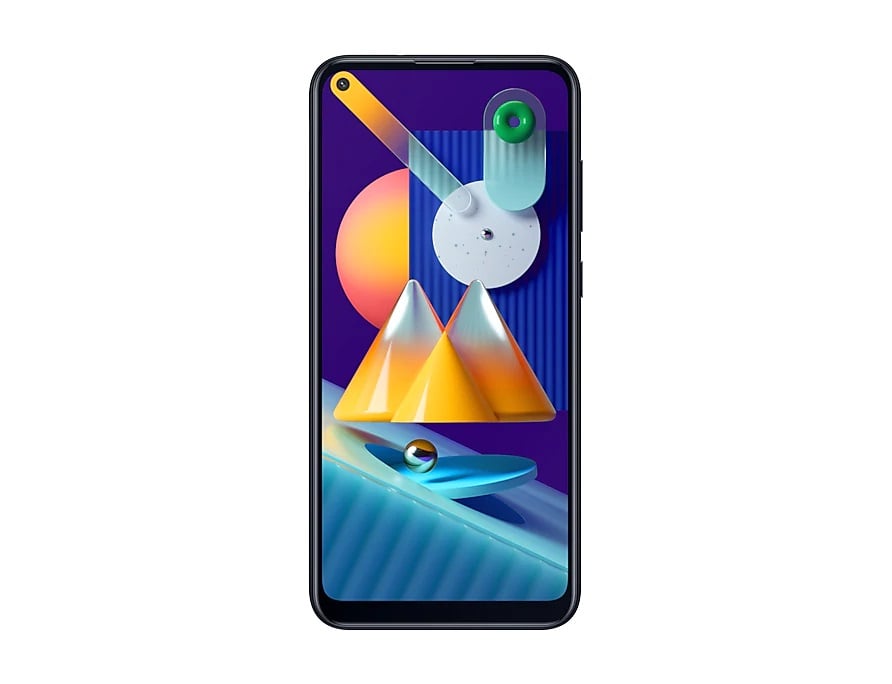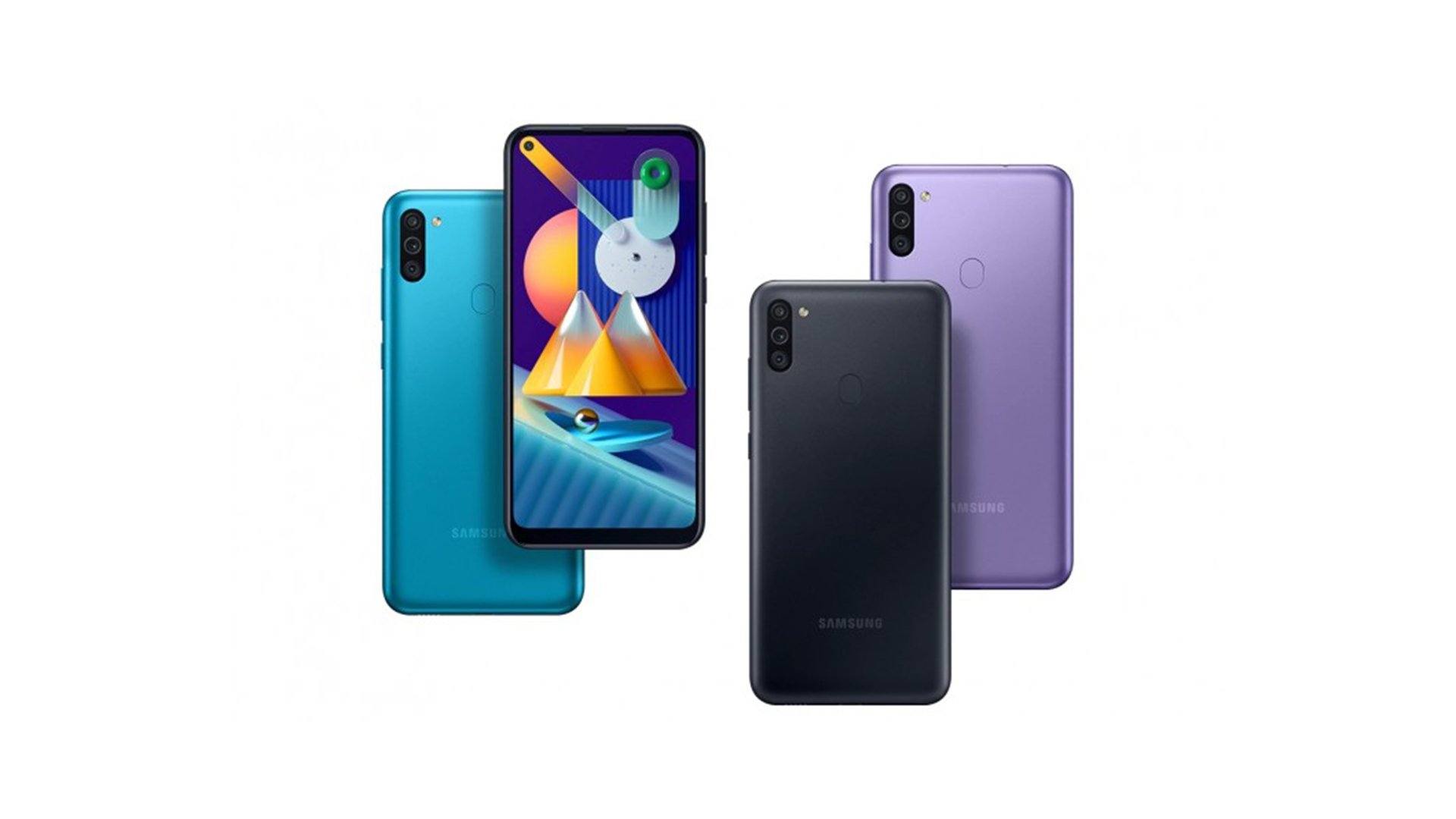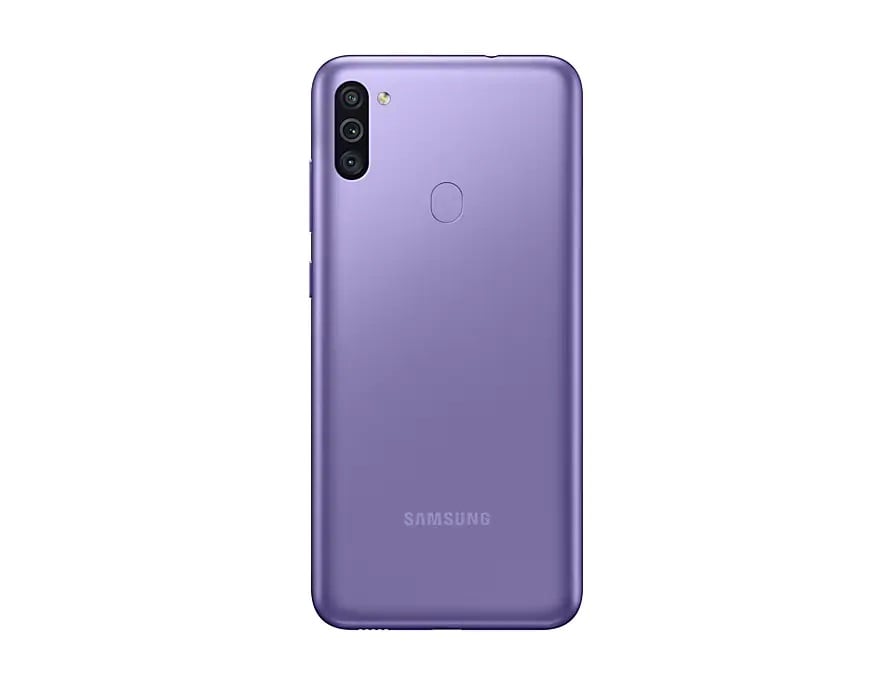Introduction
Samsung's Galaxy M lineup of entry-level devices continues this year, and the Galaxy M11, which succeeds the Galaxy M10 from 2019, is one of the latest additions. The 2020 model introduces a variety of improvements, from a larger Infinity-O display to an additional rear-facing camera and a considerably larger battery.
The Galaxy M11 continues the tradition set by its predecessor, meaning that it's one of Samsung's most affordable smartphones on the market, even though it tries to punch above its weight in terms of specs and functionality.
Design
The Galaxy M11 is unlike its predecessor or the Galaxy M21 and M31, in that it sports an Infinity-O display as opposed to an Infinity-U panel. It has a corner cutout for the front-facing camera, and this makes it look more modern and not unlike Samsung's more premium devices. It's not what you'd normally expect from a low-end smartphone. The body of this smartphone is made out of plastic.
The Galaxy M11 adopts a fingerprint scanner, and this change in hardware also reflects a change in design, as the sensor is located at the back. The physical buttons are found on the right edge, while the SIM and microSD card tray resides on the opposite edge. There's a 3.5mm headphone jack at the top, as well as a USB-C port at the bottom, flanked by a speaker and microphone. Overall, the phone measures 161.4 x 76.3 x 9.0mm and weighs 197 grams.
Specifications
Like a few other 2020 Galaxy M/A smartphones released this year, the Galaxy M11 features a 6.4-inch display. It's of the PLS TFT variety, and as mentioned previously, it follows the Infinity-O design language. The panel has a resolution of 1560 by 720 (HD+).
The phone ships with an unspecified octa-core processor, but it's very likely the Snapdragon 450. The CPU is paired with 3GB/4GB of RAM and 32GB/64GB of built-in storage expandable via microSD by up to 512GB. The 5,000mAh battery takes advantage of 15W fast charging – something that was missing from the 2019 model – and the phone also ships with Android 10 out of the box.
Display
While the design of the display has arguably improved by the switch to Infinity-O, image quality isn't fantastic. Once again, this is one of the areas that have been compromised in favor of a lower price. The display has a 19:9 aspect ration which should be familiar, but it's still a PLS TFT panel that has its downsides when compared to a Super AMOLED display. Colors are not as vibrant and brightness isn't as high either, but then again, this is Samsung's most affordable smartphone series.
Camera
The Galaxy M11 has a 13-megapixel main camera with PDAF (Phase Detection Auto-Focus) and a lower f/1.8 aperture. It should let more light in and lead to better shots in low-lit environments. The 2020 model also has a 5MP ultra-wide sensor with an f2.2 aperture, and an additional 2MP depth sensor (f/2.4).
The front-facing camera was also upgraded to a wide 8MP sensor (f2.0). Neither the front nor the rear sensors benefit from OIS.
Software
Samsung made a point this year by releasing every new smartphone with Android 10 out of the box, and the budget Galaxy M11 is no exception. This means that it also ships with One UI Core 2.0 and that it should receive two major Android OS updates – up to Android 12 – over the next couple of years.
Availability
The Galaxy M series was primarily sold through online channels, but this year, Samsung is more open to bringing the lineup to offline stores at launch. The Galaxy M11's first official appearance was on Samsung's UAE portal, which directed prospective buyers to a number of brick and mortar (offline) stores. Samsung has not yet confirmed the price and release date for this device. The Galaxy M11 will be available in black, blue and violet colors.







